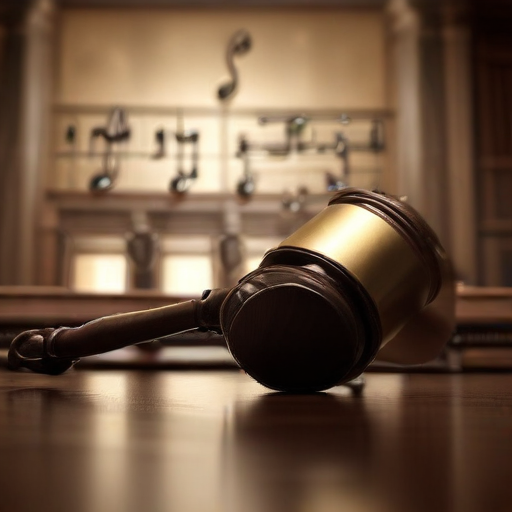Drake has initiated legal proceedings against Universal Music Group (UMG) and Spotify, claiming that the two entities conspired to manipulate the popularity of Kendrick Lamar’s diss track, “Not Like Us,” while simultaneously undermining Drake’s own music. The petition, submitted to New York Supreme Court by Drake’s company Frozen Moments LLC, accuses UMG and Spotify of implementing various tactics to enhance the visibility of Lamar’s song.
According to the legal documents, Drake’s attorneys assert that UMG conspired with unknown parties to utilize bots that artificially boosted the streaming numbers of “Not Like Us,” misleading fans about the song’s popularity. The petition also alleges that UMG engaged influencers to promote the track on social media and established financial arrangements with radio stations to further elevate its exposure.
In response to these allegations, a spokesperson for UMG labeled the claims as “offensive and untrue,” affirming the company’s commitment to ethical marketing practices and suggesting that consumer choice plays a pivotal role in music popularity. Spotify refrained from commenting on the situation.
Both artists are associated with UMG through their respective labels: Drake with Republic Records and Lamar with Interscope, both owned by UMG. The current petition serves as a preliminary request rather than a complete lawsuit, aiming to have the court mandate that both UMG and Spotify preserve all pertinent documents and communications as further legal actions loom.
This escalating conflict follows a series of diss tracks exchanged between the two, where Lamar claimed various scandals about Drake while Drake countered with accusations of his own. The petition mentions that UMG allegedly lowered licensing fees for Spotify in hopes of promoting Lamar’s track and even contended that UMG paid Apple to direct users away from Drake’s songs toward “Not Like Us.”
Notably, the petition’s claims assert that UMG’s strategies contributed to “Not Like Us” breaking streaming records, achieving a remarkable 900 million streams and setting benchmarks for single-day and weekly streams in hip-hop. Drake’s legal team argues that UMG’s actions were driven in part by the desire to maximize profits, particularly since the success of Lamar’s track also spurred interest in his previous works.
Moreover, Drake is said to have attempted to discuss these issues with UMG to seek resolution, but asserts that the company has shown little interest in accountability, instead advising him to focus his legal action on Lamar himself. His attorneys further express concerns that UMG may be trying to conceal its alleged misconduct, including terminating employees perceived as loyal to Drake.
This legal struggle highlights the intense competition within the music industry and raises questions about the ethics of promotional practices. As the proceedings advance, it will be vital for both parties to present their cases transparently, and it presents an opportunity for all artists to advocate for fair treatment in a rapidly evolving music landscape.
In conclusion, while the situation appears contentious, it is essential to remember that the music industry is vast and dynamic. It is hoped that this legal action could lead to better understanding and fairness in the way artists are treated, potentially benefitting the entire music community.
